Jack Bell Takes a Long View on Vermont’s Forests
March 23, 2022
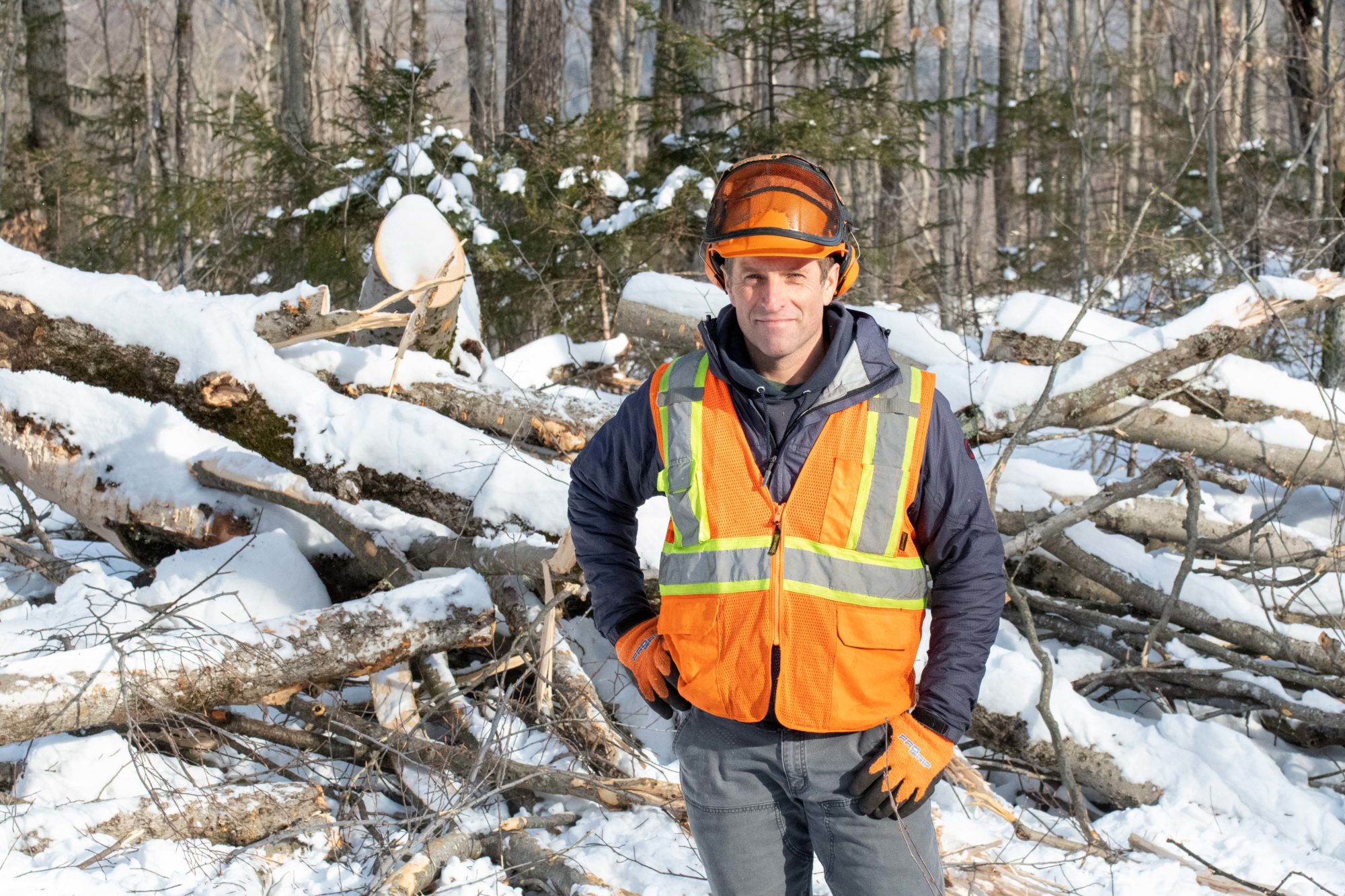
By Christine McGowan, Vermont Forest Industry Network
With an integrated approach to forestry and logging, Bell prioritizes forest health, workforce.
“Most of Vermont’s forested land is privately owned and fragmented into relatively small parcels,” said Jack Bell, co-founder of Long View Forest. “One of our goals is to provide continuity and professionalism over time so that the long-term health and composition of the forest is always the priority, even if the land changes hands.”
Founded in 1999, Long View’s model is unconventional in Vermont. First, the company offers logging, forestry consulting, and woodland services—including invasive species management and young forest tending—under one roof. Second, Bell’s vision is for the company to be around for at least a couple of centuries, and he has a plan for that.
“It’s a tall order, but our vision is to build a business that will endure,” said Bell, “that Long View will be here in 200 years. Forestry is a long-term endeavor. You need continuity to have stability. The best forest management around the world spans over many, many generations. We want to build a business that will contribute to that kind of stability for Vermont forests.”
Building a company and a workforce to endure.
One important component of Long View’s vision is a focus on growing the business and providing employees with opportunities for career advancement. “We want a business where there are pathways for personal growth, so we can retain and attract the very best people,” he said.
Bell’s own path to the forest industry has influenced his thinking as an employer and business owner. As early as high school, he wanted to be a logger. But, with no experience or connections, he couldn’t get a job. “I took a year off and moved to Maine, but no one would hire me,” he said. “I couldn’t get a job in logging, so I went to college.”
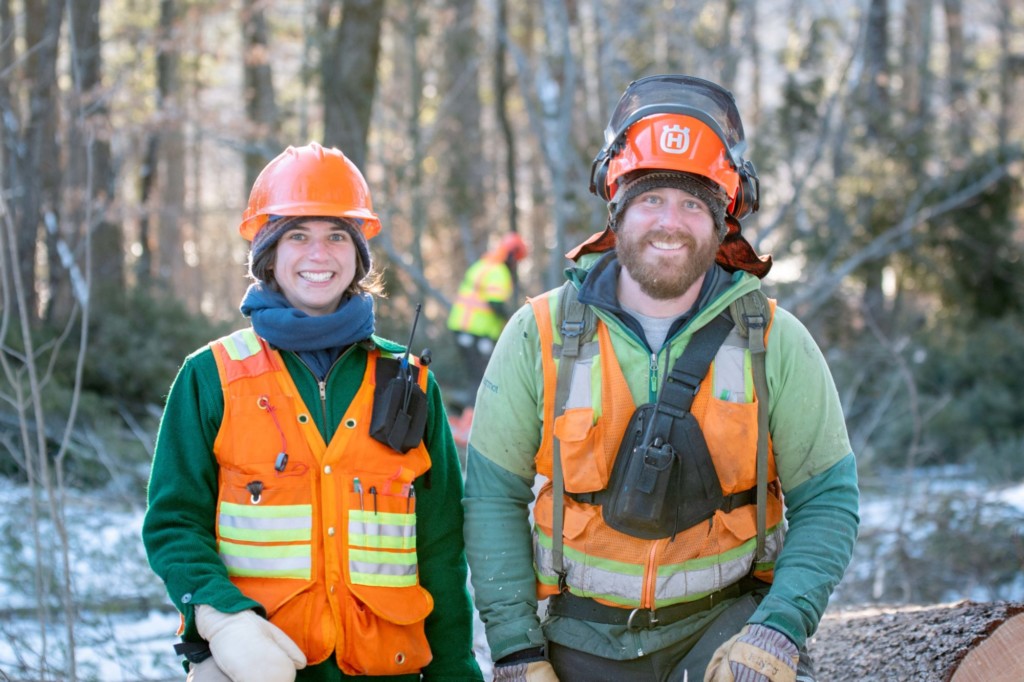
Forester Hale Morrell and forwarder operator Jack Dacey work together at an active harvest site in Windham. / Photo by Erica Houskeeper
While working on a trail crew in the White Mountains one summer, Bell met Jim Hourdequin, a student at Dartmouth interested in forest ecology and environmental policy. Hourdequin was working with a local logger named Russell Barnes to start the Yankee Forest Safety Network. Hourdequin introduced Bell to Barnes, finally giving him the entree into logging that had eluded him for years.
“I had no experience,” said Bell. “I showed up at Russell’s house and he asked me if I had brought my ax. I said, ‘we get to use axes’?” That was 1998. By 1999, Barnes had offered to restructure his company to bring Bell and Hourdequin into the business, and Long View Forest was born.
More than 20 years later, Bell and Hourdequin are constantly looking for opportunities to repay the favor. About two-thirds of Long View employees come from traditional forestry backgrounds, with training and education that ranges from hands-on, to local high school tech programs, to two- and four-year degrees from schools like Paul Smith’s College and the University of Maine, to masters programs at the University of Vermont and Yale Forestry. But the other third, like Bell, have little or no formal training. “Our lead mechanic is a great example,” said Bell. “He came to us to do logging, but we all noticed how good he was with machines. We had never had a dedicated mechanic, but I asked him if he would want to give it a try. He accepted and five years later he’s helping us take the business in whole new directions.”
Employee-owned from the start.
When the company was founded, Bell, Hourdequin and Barnes each put in $10,000 and accepted loans from family and friends. When Barnes retired in 2014, Bell and Hourdequin repurchased his shares and broadened ownership to five, and then 12, long-time employees. The company continues to incentivize employees with ownership opportunities today. In addition to the option to buy in, Long View also awards “commitment shares” to dedicated employees after five years of work. This program has added six more employee-owners, bringing the total today to 20 out of 35 current employees.
“The usual reasons for selling stock are to raise money, retain talent, and to be fair to people,” said Bell. “We think about it in reverse order. Anyone who is all in and devotes their time and life energy to this business is contributing to the value we’re building and should have a part of that long-term. It’s helping us attract and keep great people, but fundamentally it’s about fairness.”
An integrated approach.
From day one, Long View took an integrated approach to forestry and logging. Both Bell and Hourdequin had degrees in biology, and Barnes shared with them his passion for timber stand improvement.
As the company grew, services were grouped into three distinct, but overlapping areas: contracting (logging and related heavy-duty work), forest management, and woodland services. “Being integrated is about both mission and business fundamentals,”Bell said. “If we’re going to be here long-term, we have to provide value to landowners and be profitable enough to keep good people and pay them well. We believe integration and diversification help us do our best work, be efficient, and make it easier for landowners to get good work done by offering a lot of choices under one roof.”
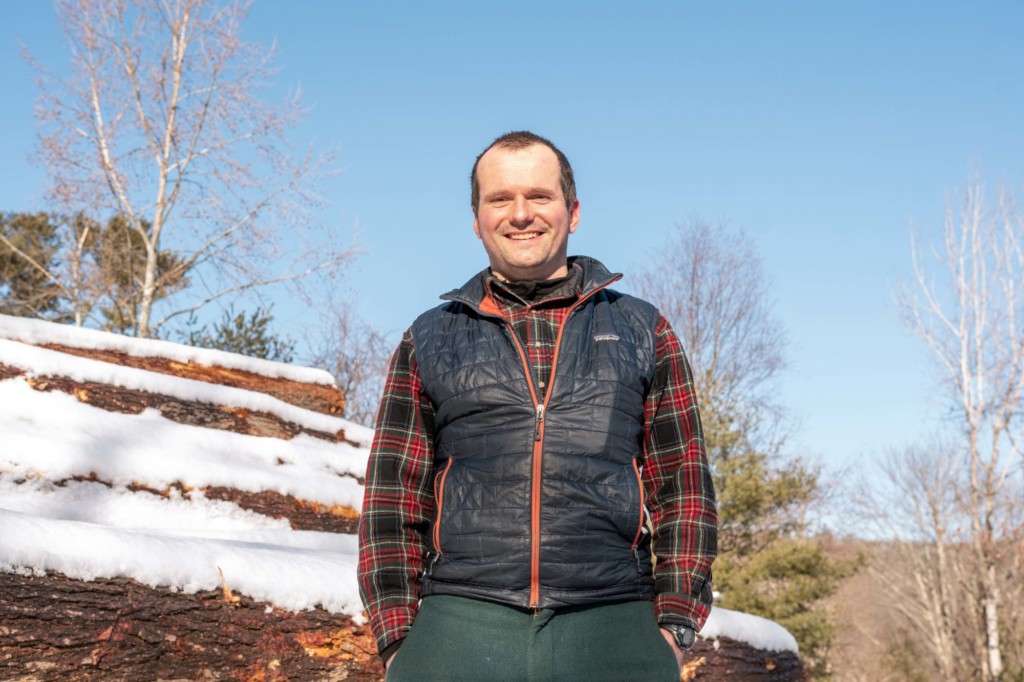
Alex Barrett, Long View’s forestry division manager, says a lot of landowners will first come to Long View with the broad goal of “making their woods better. / Photo by Erica Houskeeper
Alex Barrett, a Long View shareholder and its forestry division manager, says a lot of landowners will first come to Long View with the broad goal of “making their woods better.” But, he says, they aren’t always sure what that means on the ground or how to get started.
At a project in Whitingham, for example, a client had recently purchased a new home that just happened to come with 100 acres of forest. “The landowner had a steep learning curve when it came to forests, but wanted to enjoy his property and do right by the land. For him, this meant having a reliable ATV road network,” said Barrett, “and leaving it better than he found it for future generations.”
Long View brought their full suite of services to the project, creating a forest management plan, building a multi-purpose road network for logging, recreation, and future forest improvement tending, and completing a series of two-acre patch cuts throughout the property to increase wildlife habitat in the forest.
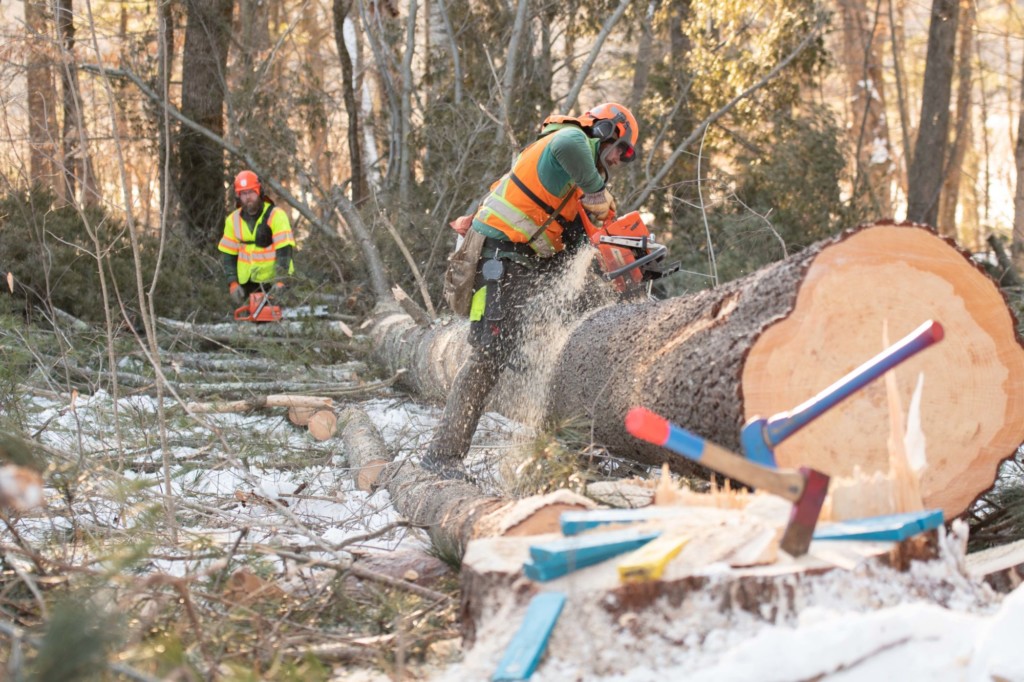
Employee Jack Dacey uses his chainsaw at an active harvest site in Windham. / Photo by Erica Houskeeper
At another site in Putney, Long View guided a landowner to the Natural Resources Conservation Service (NRCS), which in turn funded timber stand improvement, invasive work, and habitat creation on the 200-acre, privately owned parcel. To ensure that the work was done to the specifications of the NRCS, which requires a complicated mix of overlapping practices each with performance metrics tied to funding, Long View Woodland Services technicians worked closely with the lead forester to implement invasive plant control ahead of a planned timber harvest.
“A lot of what we do is not the traditional approach to logging where a contractor heads to the woods mainly to extract value for the landowner,” said Barrett, “so it’s helpful to have everyone working and coordinating under one roof so we can meet the goals of forward-thinking landowners.”
In the end, forest management is only as good as the contractors who implement it. A sustainable forest and forest economy rely on a year-round, professional workforce that companies like Long View hope to sustain into the future. “Being able to collaborate side-by-side with the people who are implementing the forest management plan is the main reason I came to work at Long View. It’s how we help clients achieve their goal of leaving the forest better than they found it.”
The long view for Long View.
As Bell looks to the future, his goals for the business are as much about mission as they are stability. “We’re continuing to diversify and build up the mix of work we do,” he said, acknowledging that extreme weather events and unpredictable weather patterns have impacted all parts of the business. “If we want to have high quality jobs and employ people year-round, we have to have steady work.”
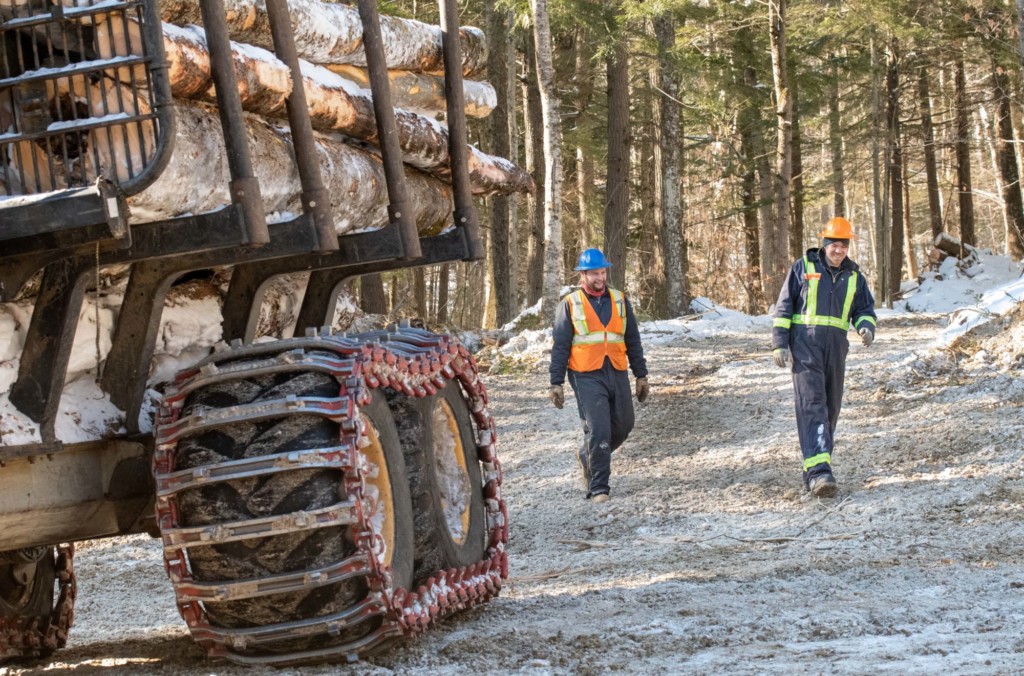
Long View mechanics Wyatt Blanchard and Paul Lang work together in Hanover Town Forest. One important component of co-founder Jack Bell’s vision is a focus on growing the business and providing employees with opportunities for career advancement. / Photo by Erica Houskeeper
In addition to timber stand improvement and invasive work, Long View has expanded into forest road and trail building, tree planting and pruning, clearing and brush mulching, and most recently, selling cut-to-length logging equipment for the Swedish company Rottne. “We’re diversifying as fast as we can into areas that are at least somewhat less weather dependent,” said Bell. “Warmer, wetter weather is a big concern and a big challenge.”
Ultimately, Long View’s vision of healthy, productive forests in Vermont is directly tied to finding new ways to bring—and keep—the next generation of forest industry professionals into well-paying jobs that prioritize the long view over short-term gain. It’s not a new idea, but Bell and his team are working to make it a reality every day.
About the Vermont Forest Products Program at VSJF
Vermont’s forest economy contributes more than $2 billion in direct economic output and provides more than 13,000 jobs in forestry, logging, processing, specialty woodworking, construction, wood heating, maple production, and forest-based recreation. The Forest Products Program at the Vermont Sustainable Jobs Fund (VSJF) creates space for strong relationships and collaboration throughout the industry and promotes the development of new and existing markets for Vermont wood products. Committed to nurturing the sustainable development of Vermont’s economy, VSJF provides business assistance, network development, strategic planning, and value chain facilitation in agriculture and food system, forest products, waste management, renewable energy, and environmental technology sectors. Learn more at www.vsjf.org.




